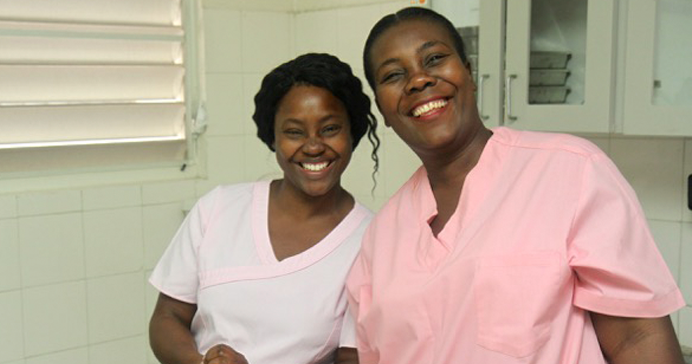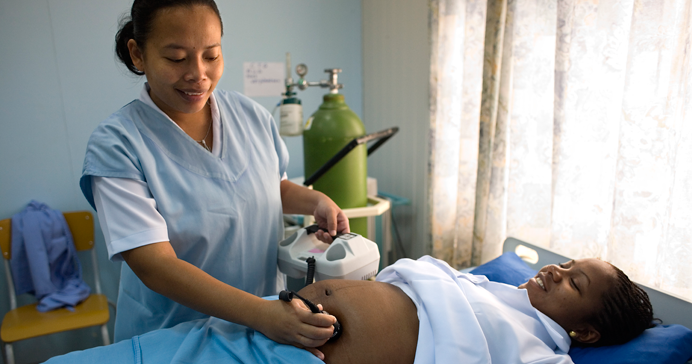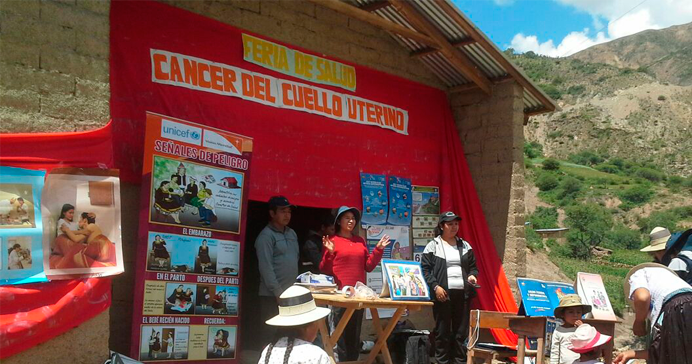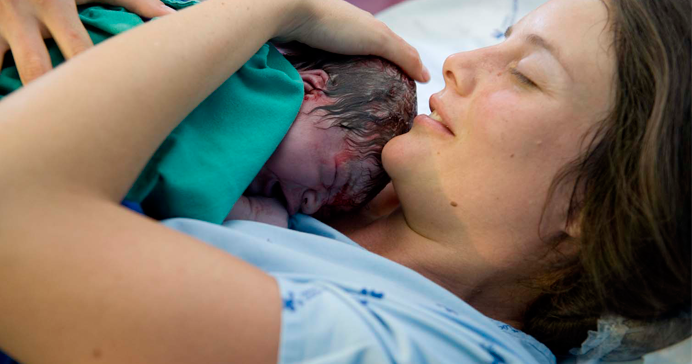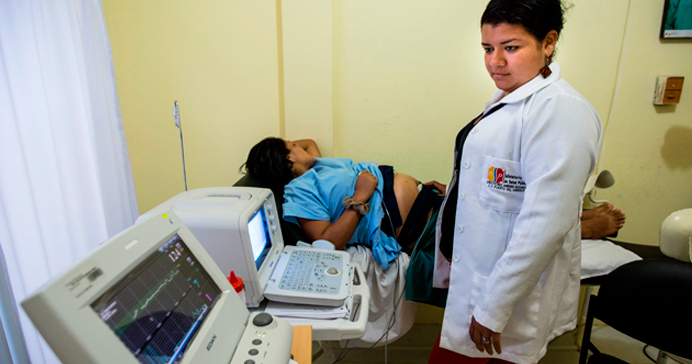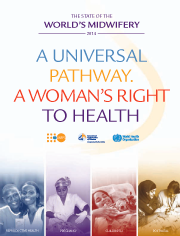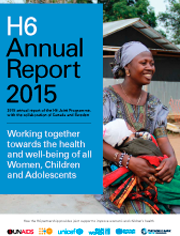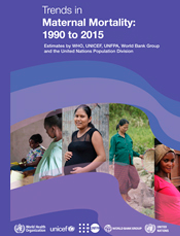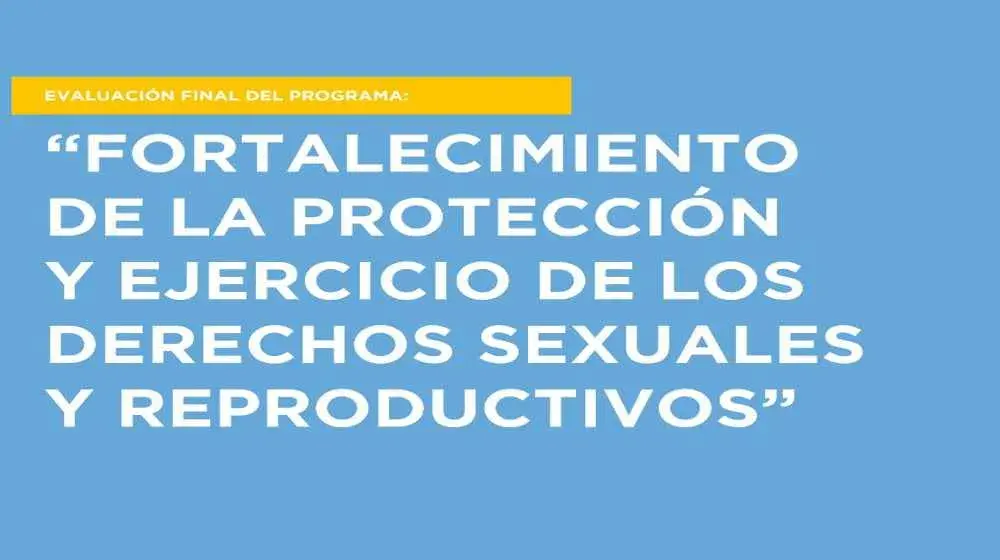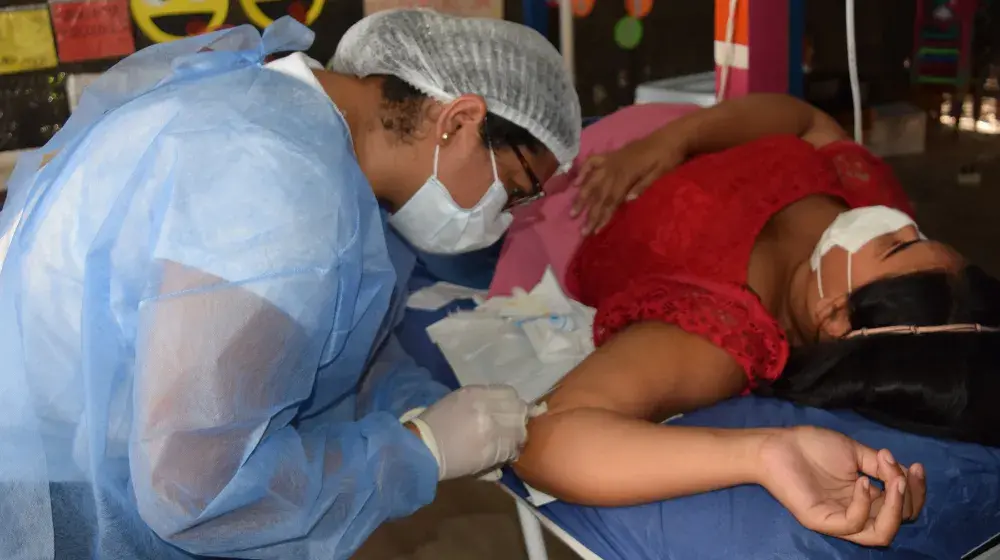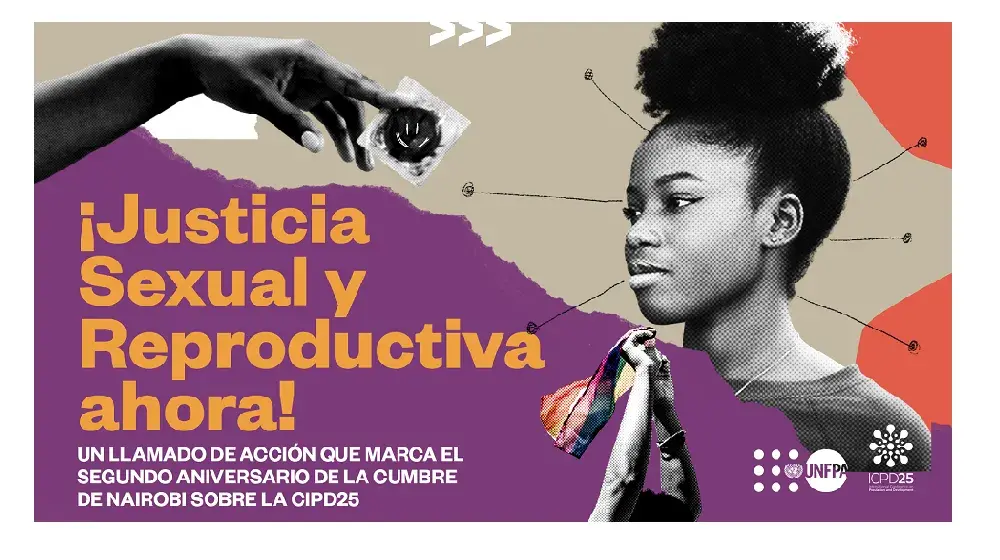Special Report: International Day of the Midwife, 5 May 2017
UNFPA, the United Nations Population Fund, celebrates the heroic and life-saving work that midwives do every day, often in very trying circumstances. Thanks to midwives, millions of women each year are able to exercise their right to sexual and reproductive health services, including voluntary family planning. These services help ensure wanted, healthy pregnancies and safe births.
Yet, in Latin America and the Caribbean, far too many women still lack access to these services. As a result, each year more than 7,300 women die during pregnancy and childbirth, approximately 1 million women do not give birth at health facilities and two million newborns do not receive the treatment they need to avoid complications.
Professional midwives save lives and help avert roughly two thirds of all maternal and newborn deaths, according to the most recent “State of the World’s Midwifery” report. They could also deliver 87% of the needed essential sexual, reproductive, maternal and newborn health services.
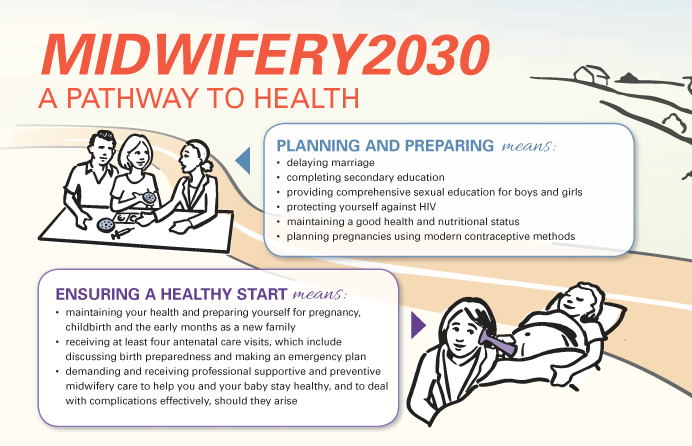
UNFPA strongly supports the training and work of midwives in more than 100 countries. Since 2009, UNFPA has worked with different partners to support over 600 midwifery schools, educating more than 80,000 midwives. We have also strengthened national midwifery associations in 75 countries and helped enhance the regulatory framework for midwifery practice to ensure accountability.
According to Alma Virginia Camacho, UNFPA’s Regional Advisor on Sexual and Reproductive Health for Latin America and the Caribbean, “UNFPA’s interventions focus on supporting the development and strengthening of professional midwifery in the region. We invest in competency-based professional education following the guidelines of the International Confederation of Midwives (ICM); support the development of solid regulatory frameworks to ensure quality services; promote the leadership and training of young professional midwives, and prioritize strengthening regional professional midwifery platforms such as the Latin American Midwives Federation (FLO) and the Caribbean Regional Midwives Association (CRMA).”
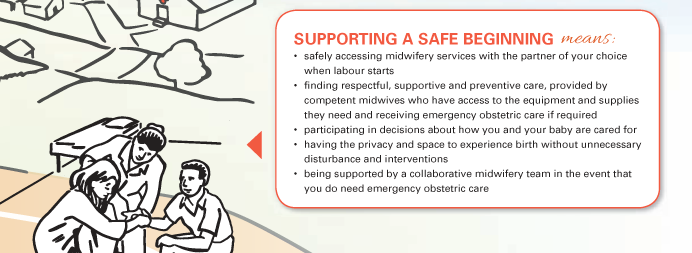
Javier Domínguez, UNFPA Mexico’s Sexual and Reproductive Health Program Officer, on the other hand, affirms that the real challenge for the region is to be able to work simultaneously and holistically on those four components. “There is no sense in training midwives if we fail to align public policies that allow us to hire them with a decent salary, provide the infrastructure they need to do their job, or raise awareness in communities so they will want to seek care from midwives.”
Ana Labandera, Head of the Obstetrics Department of the Women’s Hospital in Montevideo, Uruguay, states that one of the biggest challenges for professional midwifery is that of “getting leading groups of professionals, such as associations and colleges in the region, to work hard to regulate their extended professional activities so their practice becomes more holistic, according to women’s needs in this vital stage.”

The State of Midwifery in Latin America and the Caribbean
In Latin America and the Caribbean, all the different sectors involved have expressed their interest and willingness to link professional midwifery to the delivery of sexual and reproductive health services and strategies, including maternal and newborn health.
Their efforts have focused on most of the countries in the Region, including, among others, Brazil, Uruguay, Argentina, Chile, Bolivia, Ecuador, Paraguay, Barbados, Trinidad and Tobago, Guyana, Belize and Jamaica. UNFPA, working together with the
University of Chile, through its Obstetrics School, and
Reprolatina, is implementing a regional program to build the competencies of health providers, especially midwives, related to the provision of reproductive health services, including family planning and counseling.
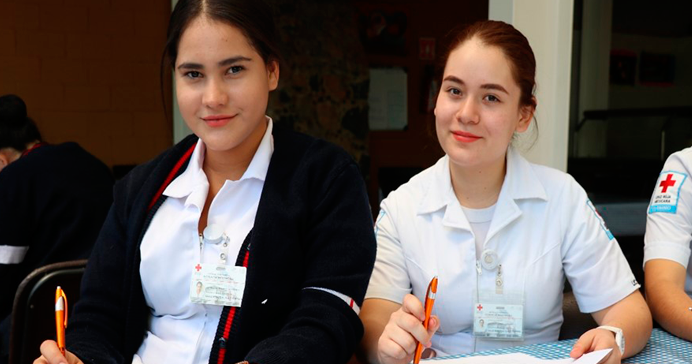
In Mexico, two programs designed to increase the availability of maternal health services and improve their quality are currently being implemented. The objective of the program “Comprehensive Strengthening of Midwifery”, which is supported by the Mac Arthur Foundation, is to improve midwifery services by leveraging the capacities of technical midwives, professionals and obstetric nurses, and effectively and efficiently coordinating their work with that of other human resources, such as health and community workers, including traditional midwives.
UNFPA’s Latin America and Caribbean Regional Office is providing technical assistance to strengthen professional midwifery in Mexico in collaboration with the ICM and the professional midwives network in the region, in the areas of education, regulations and professional association. The “
Project to Strengthen Professional Midwifery Training Programs in Selected States”, on the other hand, is an initiative supported by
Johnson & Johnson Mexico.
In
Haiti, for example, 2,000 midwives are needed to provide health care and services for women of reproductive age. At present, there are only around 200 midwives working at health institutions in the country. UNFPA is providing the health system with the support it needs to achieve that goal. In addition to the government, UNFPA is the only donor for the National Midwifery Institute.
In 2016, 76 students graduated from the country’s Midwifery School. They are a valuable resource for maternity centers and communities seeking to improve health care and increase the number of institutional childbirths attended by qualified staff.
In Trinidad and Tobago, UNFPA also works closely with the national Midwives Association and the Caribbean Regional Midwives Association by providing capacity building assistance in the areas of competency-based training, advocacy for the formulation of public policies and training of young leader midwives.
In Guyana, the remotest communities are the ones benefiting the most from having a qualified midwife. That is the case of obstetric nurse Patricia Achee Grimmond, from Lethem, Region 9. In this community, Patricia looks after the health and well-being of one of the most vulnerable groups: women, adolescents and indigenous children. “In this region, resources are limited and the terrain is difficult to access”, says Achee Grimmond.
Patricia began her career as a midwife more than 25 years ago, and has continued to work for her community despite the difficult circumstances, undertaking any efforts necessary to make sure her patients and pregnant women receive the quality service they deserve.
Bolivia has 200 midwives, better known as obstetric nurses. In this South American nation, professional midwives have undergraduate degrees in obstetric nursing and are experts in sexual and reproductive health and intercultural health care.
Their main mission is to provide quality care to Bolivian indigenous women during pregnancy, childbirth and post-partum. But they don’t sit back and wait for patients to come to the health center; they travel to remote communities, even if that means walking more than five hours in some cases. During their visits to communities, they also carry out prevention activities, such as participating in information fairs, delivering awareness-raising talks or making school visits to talk about teenage pregnancy prevention.
In Brazil, in collaboration with the Ministry of Health and the Brazilian Association of Midwives and Obstetric Nurses (ABENFO), UNFPA is implementing the project “Qualification of Obstetric and Newborn Care in Teaching Hospitals”, which is aimed at certifying care, management and training processes related to childbirth, birth and safe abortion in teaching hospitals based on the principles of scientific evidence, humanization, safety and rights protection.
UNFPA also promotes and brings attention to the work of midwives and midwifery professionals. It is currently providing technical assistance for a publication to celebrate the 10th anniversary of the obstetrics career in the University of São Paulo, which will be launched in the middle of this year.
In Belize, UNFPA has worked following a comprehensive approach through a series of training courses to improve the quality of maternal and newborn care, working together with local authorities and communities, to reduce maternal mortality to zero in 2011 and 2013. Capacities have been built through the obstetrics, neonatology and family planning training program for physicians and midwives.
In
Ecuador, UNFPA assisted the Ministry of Health (MSP) in the process of building capacities among health promoters, who are the first point of contact between the community and health workers. “The MSP and UNFPA have played a key role because, thanks to a series of training courses, we have learned to identify the main signs of danger during pregnancy and what to do about them”, says Margarita Mamallacta, a midwife and health promoter from the Sucumbios province.
Mario Vergara, UNFPA’s representative in Ecuador, says that “Ecuador has a National Sexual and Reproductive Health Plan, and one of its main goals is to strengthen the practice of obstetrics, linking it to the academia, in addition to strengthening obstetrics careers. Its practice saves many lives every day.”
By improving the midwifery services promoted through these regional projects, we are helping to promote the exercise of reproductive rights through women’s universal access, during the pregestational, pregnancy, puerperium and neonatal stages, to respectful and quality midwifery services, as well as to reduce maternal and perinatal morbidity and mortality, with a intercultural approach that prioritizes highly marginalized and risk groups.
Text: Guadalupe Valdés. Photos: José Antonio Guayasamín, Pelu Vidal, Mila Petrillo, Claudia Porras, Desiderio Montero, Nadia Todres.
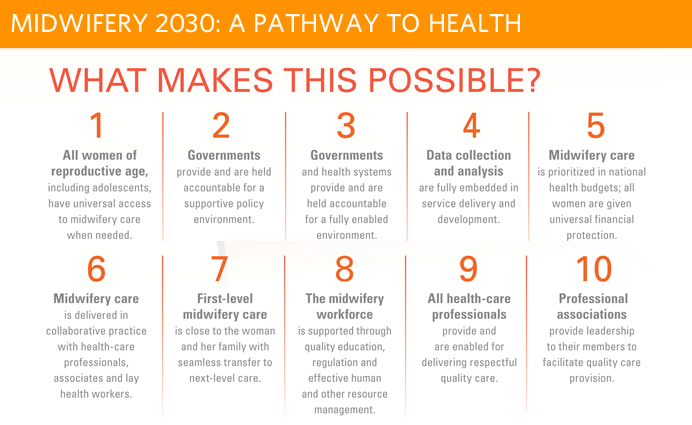
Recommended Reading
Complementary Highlights




